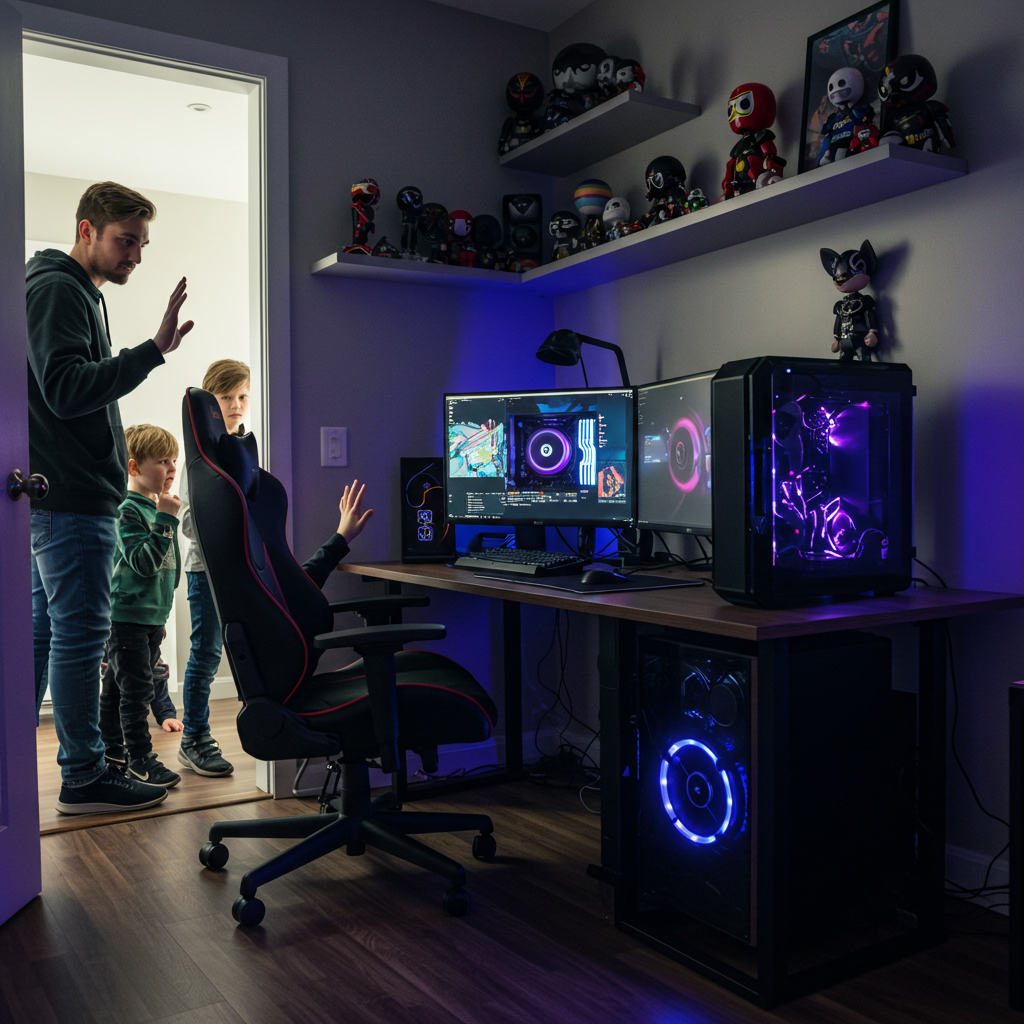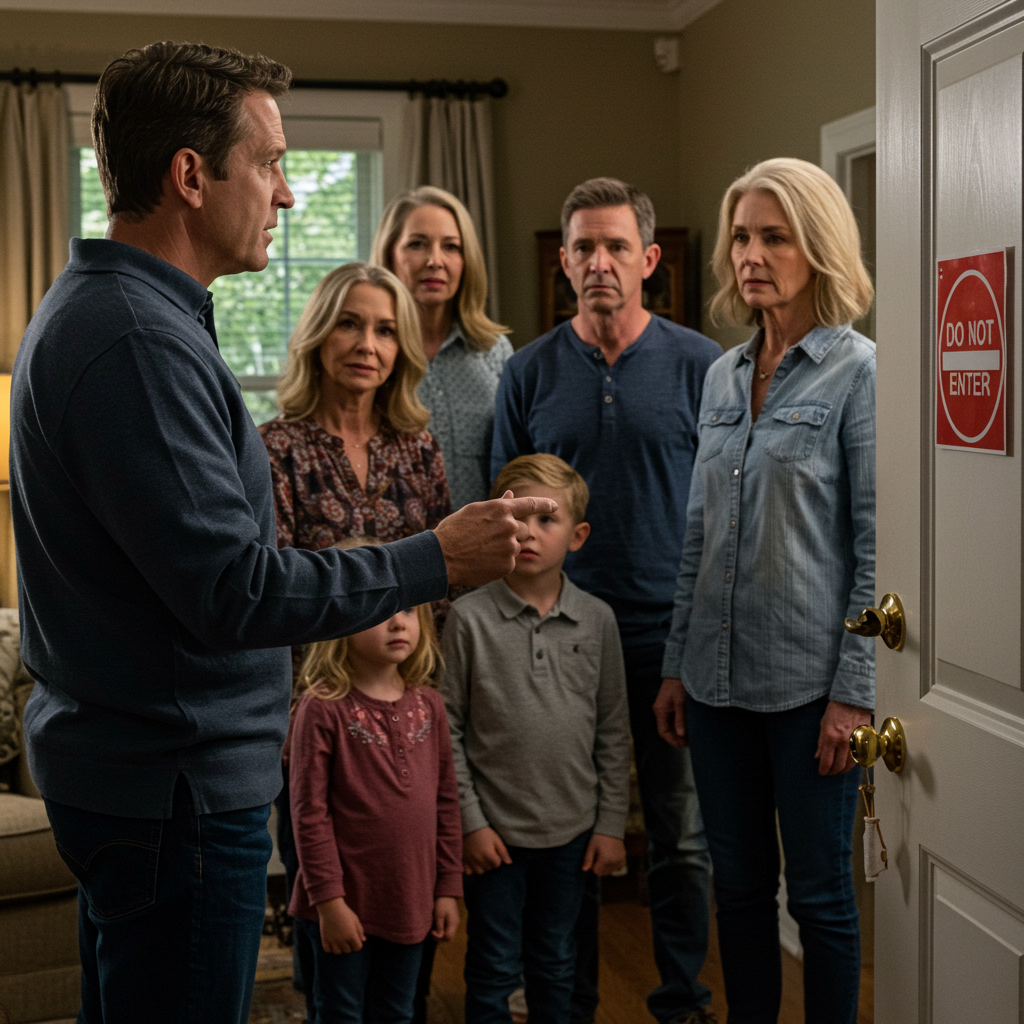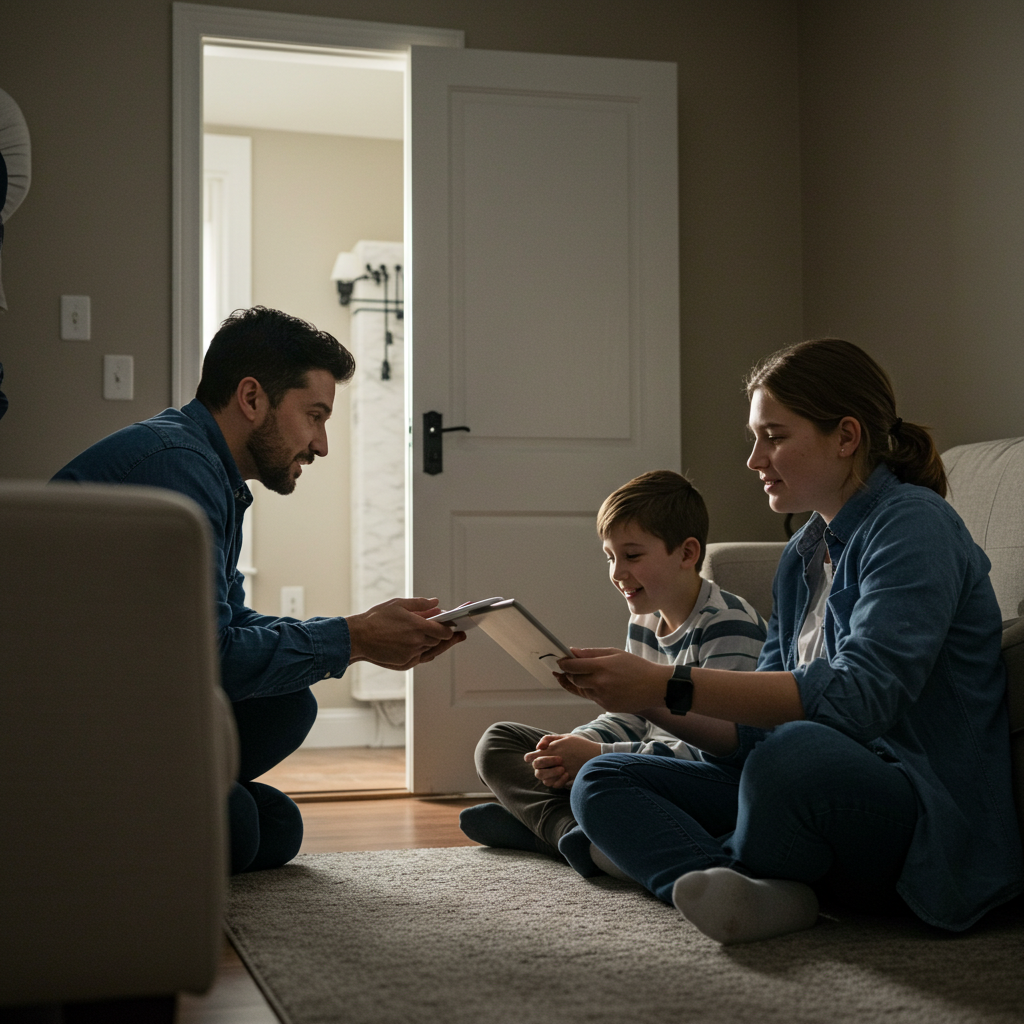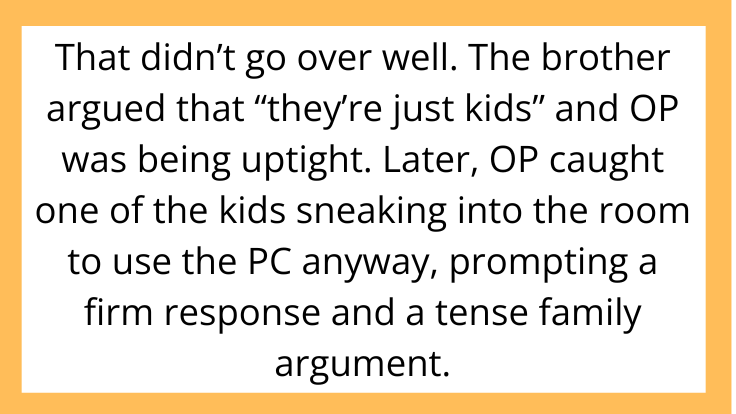AITAH for Not Letting My Brother’s Kids Use My Gaming PC When They Visit?
Family visits are supposed to be warm, joyful, and full of bonding—but what happens when boundaries are crossed, and personal property becomes fair game? That’s exactly what happened in a recent r/AITAH post where a user asked if they were wrong for refusing to let their brother’s kids touch their high-end gaming PC during family gatherings.
This sparked a lively debate about respect, entitlement, and how much you owe visiting relatives—especially when kids are involved.
Let’s unpack the situation and explore whether protecting your personal space makes you a bad sibling—or just someone with healthy boundaries.
The Scenario: Gaming Gear vs. Family Expectations

The original poster (OP) lives alone and has invested thousands into building a high-performance gaming setup. From custom water cooling to rare collectibles, the PC is not just for gaming—it’s a passion project and serious financial investment.
When OP’s brother and his family came to visit for a weekend, the kids (aged 8 and 11) immediately wanted to play on the “cool PC.” OP politely declined, explaining it’s not a toy and they’d prefer the kids use a console in the living room.
That didn’t go over well. The brother argued that “they’re just kids” and OP was being uptight. Later, OP caught one of the kids sneaking into the room to use the PC anyway, prompting a firm response and a tense family argument.
OP asked Reddit: Was I the jerk for not sharing?
When Boundaries Feel Like Betrayal to Family

Many people—especially those with children—have a different view of personal space. It’s not uncommon for parents to expect a bit of flexibility from relatives during visits. But does that mean all rules go out the window?
OP’s dilemma is a classic example of how personal boundaries, when enforced, can feel like rejection to others. But setting limits isn’t about being unkind—it’s about protecting what matters to you.
Consider these points:
-
Not everything is for everyone. Just like you wouldn’t let a kid drive your car or use your power tools, not every possession is appropriate for children.
-
It’s not just a computer. For many gamers and creators, their setup is like a workplace. It’s a mix of function, investment, and emotional value.
-
Respect goes both ways. If someone is kind enough to host, their space should be respected—not treated like a public playground.
How to Say No Without Causing Drama

Of course, nobody wants family visits to end in arguments. Here are a few ways OP—and anyone in this situation—can navigate the issue with care:
-
Set expectations early. A quick message before the visit (“Hey, just a heads up—my PC room is off-limits to the kids”) can prevent awkward moments later.
-
Offer alternatives. Have a console, tablet, or other kid-friendly entertainment ready so they’re not feeling excluded.
-
Enforce boundaries kindly. A firm “This area is private, but here’s what you can do” reframes the rule positively.
-
Talk to the parents first. If kids aren’t respecting limits, loop in their guardians before taking matters into your own hands.
Reddit’s Verdict

The r/AITAH community overwhelmingly supported OP. Many shared stories of their own expensive equipment being damaged by careless guests. Some even suggested OP was too polite—arguing that the brother should have taken more responsibility for his children’s behavior.
Others pointed out that teaching kids respect for others’ property starts at home, and moments like this are opportunities for growth—not guilt trips.
Final Thoughts: Is Protecting Your Space a Crime?

It’s natural to want peace during family gatherings, but that doesn’t mean you have to surrender your privacy or possessions. Saying “no” doesn’t make you rude—it makes you self-aware.
When boundaries are clearly communicated and alternatives are offered, most reasonable people will understand. And if they don’t? That says more about them than it does about you.



